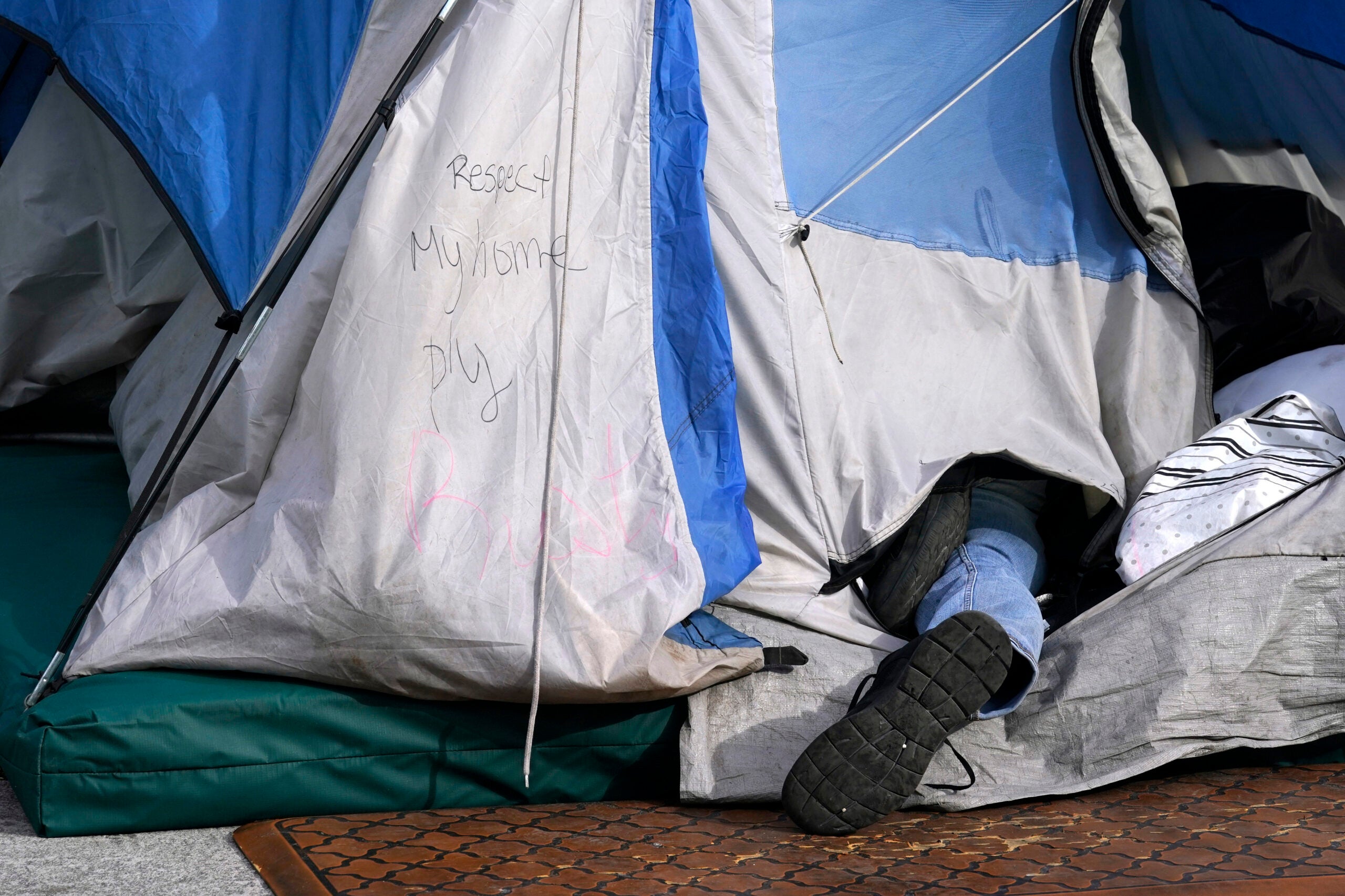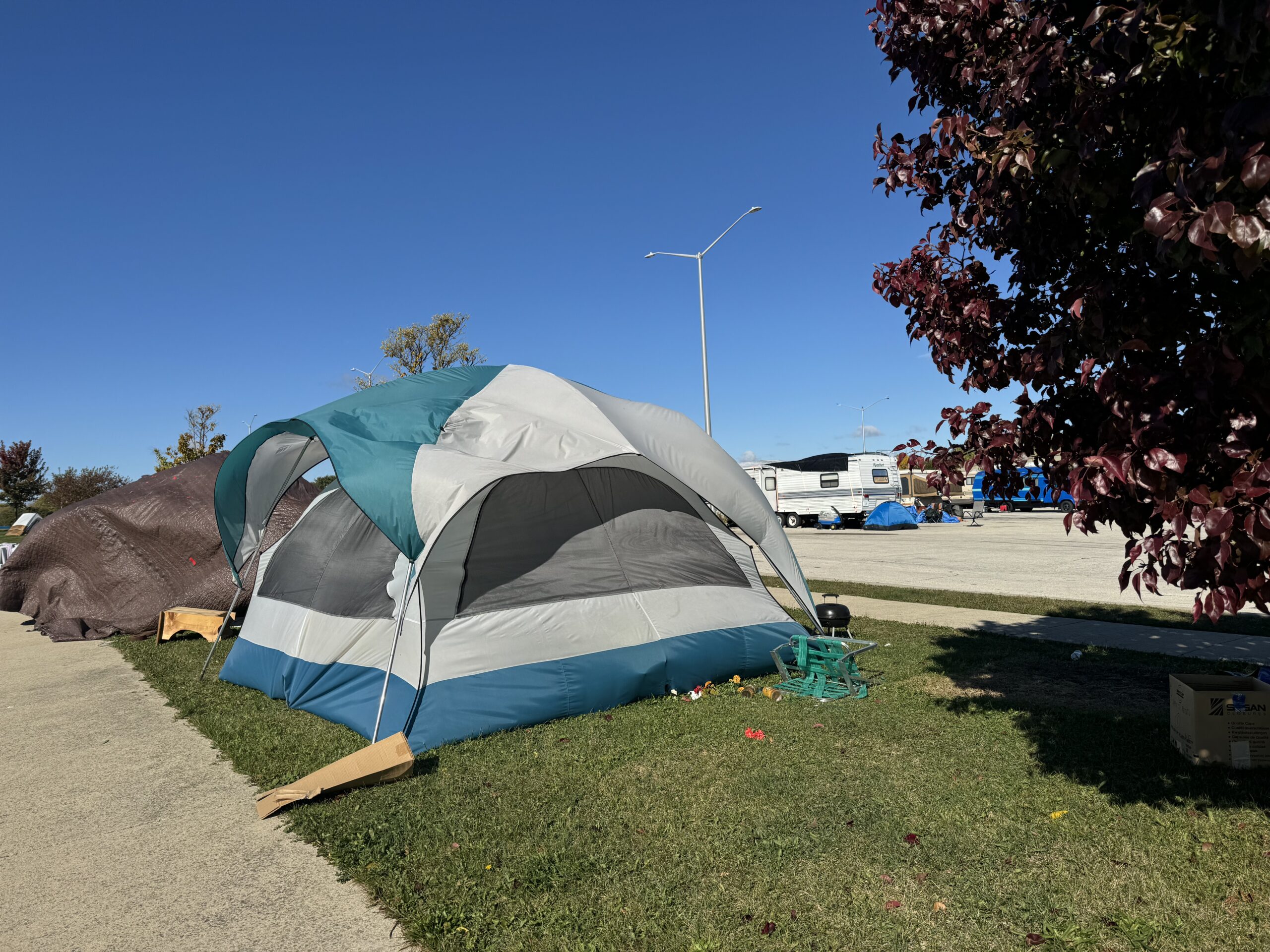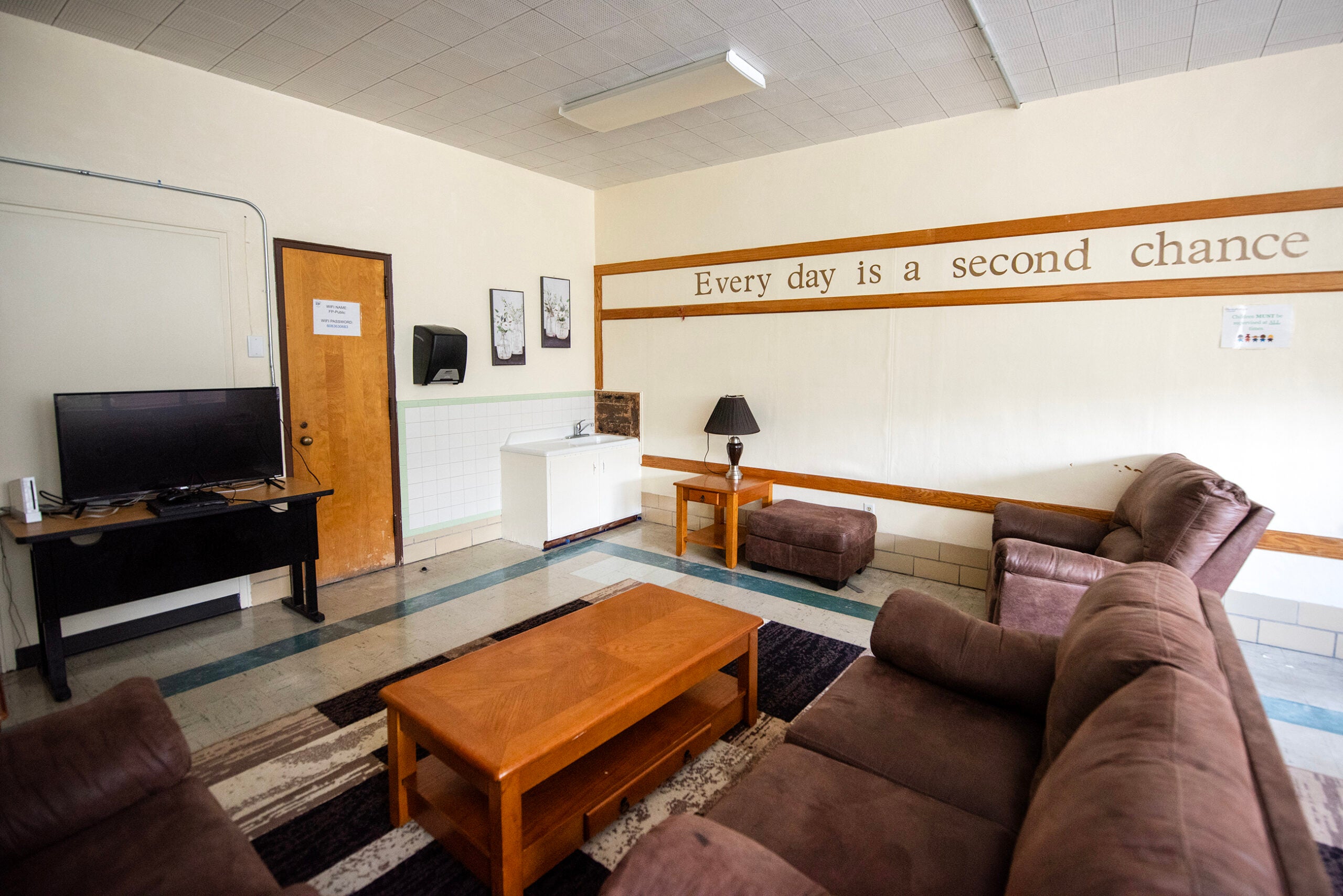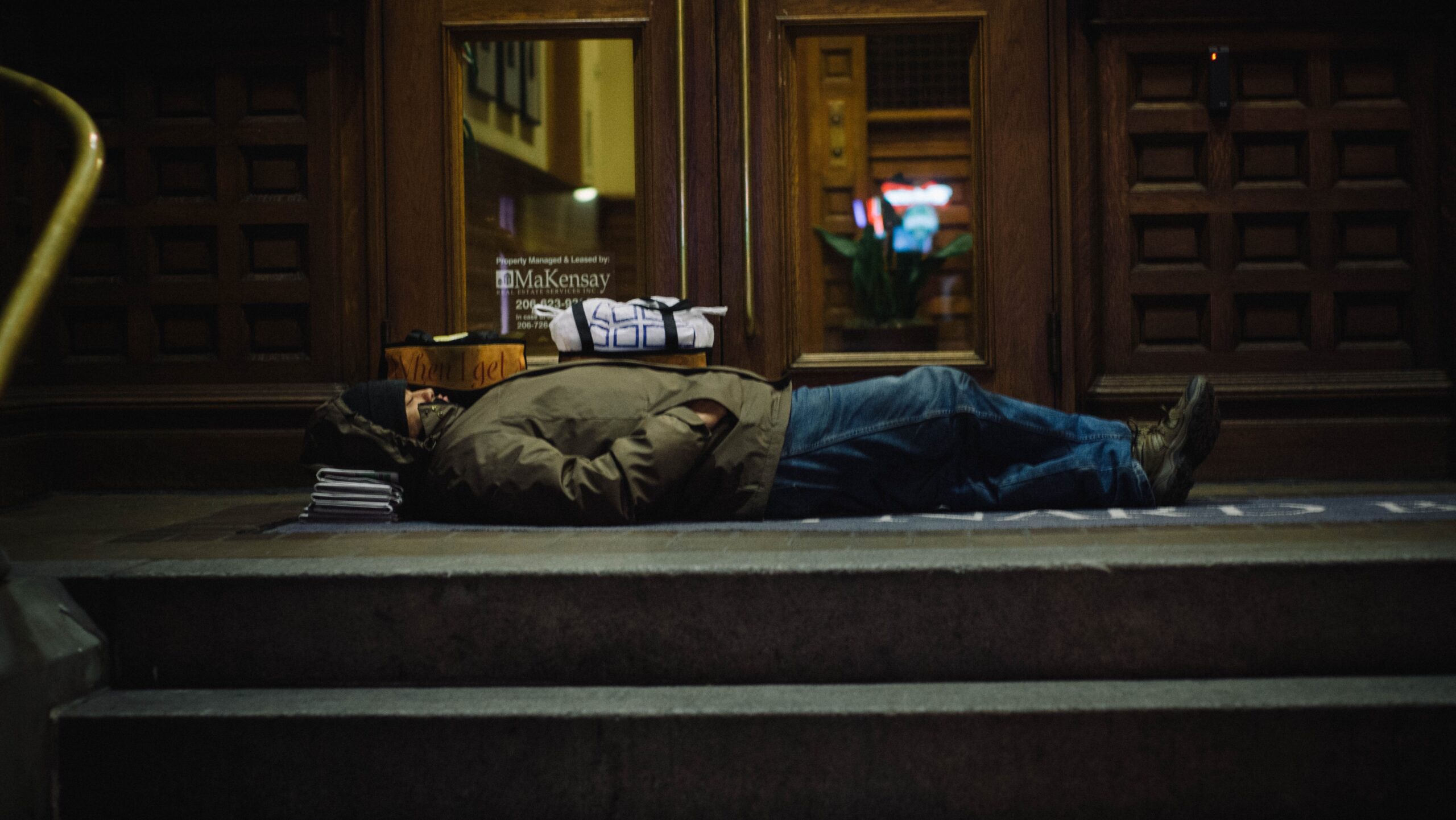The Wausau City Council recently approved funding for two officers dedicated to addressing homelessness, a move Wausau Police Chief Matt Barnes said is already yielding results.
In an interview with WPR’s Shereen Siewert on “Morning Edition,” Barnes said the officers work both to enforce city ordinances and to connect individuals with resources aimed at breaking the cycle of homelessness.
Critics, however, have accused the city of criminalizing homelessness, citing decisions like removing encampments and disallowing tents in parks. In part one of this series, Vicki Harness, executive director of the Marathon County Community Outreach Task Force, told WPR her organization can sometimes be at odds with police policy.
News with a little more humanity
WPR’s “Wisconsin Today” newsletter keeps you connected to the state you love without feeling overwhelmed. No paywall. No agenda. No corporate filter.
“We’re doing what we can to help our clients survive, and at many times, it seems like the police are doing everything they can to make them go away,” Harness said.
But Barnes said encampments only devalue the quality of life for other Wausau residents. He highlighted the city’s challenge of balancing compassion for those in need with maintaining public spaces for the broader community.
As part of a larger solution, Barnes is optimistic about the ongoing work of a joint task force involving Marathon County and the City of Wausau. The group, which includes nonprofits and local officials, is working to identify capacity issues and explore long-term solutions to achieve “functional zero” homelessness.
“What are the gaps and needs in the community, and who will pay for them? Those are questions we don’t yet have the answers to,” Barnes said.
The following interview was edited for brevity and clarity.
Shereen Siewert: I want to start by talking with you about Garrick Dixon. In November, 37-year-old Garrick DIxon fell asleep and died in Wausau’s Marathon Park. Your officers work with homeless residents like Mr. Dixon on a daily basis. They get to know them. What was it like when the people in your department learned of his death?
Matt Barnes: Our officers don’t want to see anyone die, but they’re also prepared for that. Just looking at the situation that we’re dealing with in this community and the decisions that people are making, you don’t have to be a social scientist to predict that this is going to be one of the outcomes.
None of our staff ever likes going into those situations, but I think we expected it to occur. I expect it to occur again at some point in the future. That’s part of the tragedy that we deal with. Part of the job of being an officer is responding to and being resilient to death and tragedy. But I wish they didn’t have to.
SS: In April, the Wausau City Council approved two additional officers to specifically address calls regarding homeless residents. What are their specific roles and responsibilities like?
MB: We give them some geographic areas to cover including the downtown and our parks, and we ask them to do two things. One is to work with our community outreach specialist to connect people with resources that empower them to leave homelessness. The other is enforcing our ordinances and our laws and the standards of the Wausau community.
It’s a two-fold job description, really, but it’s amazing to me how often both things occur at the same time. I’m not sure everyone in the community really grasps how you can potentially arrest someone for breaking the law and at the same time get them resources and subsequently see that the way in which they were able to access those resources was through the criminal justice system.
SS: Have you had a sense of the impact that those new officers have had so far?
MB: Yes. I hear from business owners and people who make their home in the downtown area with positive affirmations saying that things are better and they feel safer. They tell me they don’t necessarily have the same concerns they did before. I’ve gotten some of that positive feedback that I have shared with our staff.
But what’s more valuable is when one of our officers comes to me and tells me that one of the people who has a history of being chronically homeless in our area is in rehab outside of this community in an inpatient facility, and that they’re there because of the work that our officers are doing. It’s fulfilling to me, and it convinces me that the decisions we’re making in Wausau are the right ones.
SS: Some people have accused the city of criminalizing homelessness. How do you respond to that?
MB: I think using words like “criminalizing homelessness” is a copout, to be honest with you. I think it’s offensive to me and to our officers that are doing the work, because we don’t criminalize homeless individuals. Being homeless is not against the law.
However, breaking the law, behaving in a violent manner, sexually assaulting someone, exposing yourself and behaving poorly is not OK. We arrest people who commit crimes. People think we are arresting people for peeing in the bushes and nothing could be further from the truth. There are serious crimes that are committed and some of the actions of the homeless people in our community are negatively impacting what Wausau is and devaluing that.
We have parks that the city has invested in over generations and it’s some of the most prime real estate in Wausau. We have a parkway that extends almost the entire length of the river throughout downtown. If that becomes an encampment and we allow that to occur, the quality of life downtown goes down. It is a balance, and every single day we grapple with that.
SS: What do you envision as a collaborative solution to this issue moving forward? What can be done?
MB: One of the things that’s really exciting going on in this area, which is probably overdue, is Marathon County as a system of government is a joint task force run by the county board and the Wausau City Council. It involves different nonprofits and elected officials from both boards. I sit on it as well. The task force is taking a look at capacity issues.
Really, the question to be asked is what is necessary to move that needle here to strive for a functional zero where people are leaving homelessness at the same rate people are entering homelessness in our community and need resources? Maybe the question is, who should pay for it and is that a role of government or a role of nonprofits?
If you have an idea about something in central Wisconsin you think we should talk about on “Morning Edition,” send it to us at central@wpr.org.







